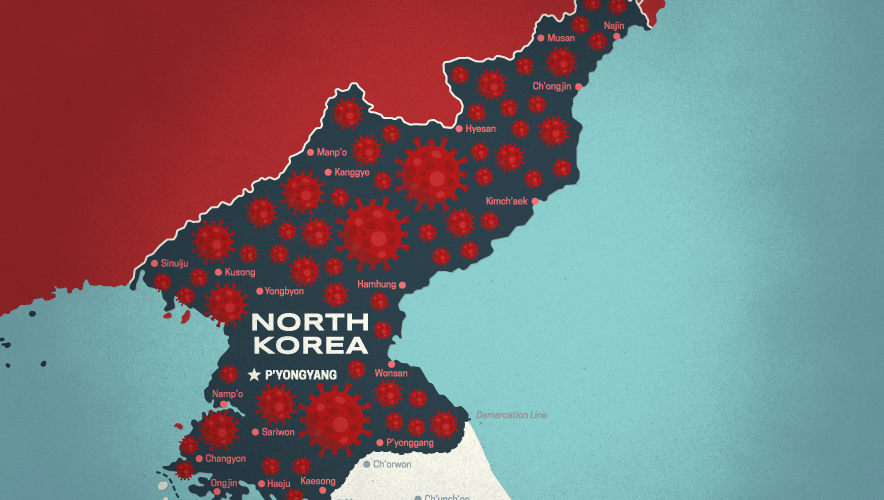North Korea Announces Rapid COVID-19 Spread
Years after the start of the COVID-19 pandemic, North Korea has announced its first acknowledged cases of the disease. So far, nearly 1.5 million people have presented with a fever, North Korean state media said, and 56 people have died.
Up until now, North Korea has claimed that it had not had a single case of the coronavirus, and most of the 25 million North Koreans are unvaccinated against the virus. The country has refused multiple international offers of vaccine doses, The New York Times reported, and South Korea has offered to send unlimited aid north if needed, including vaccines, health workers, and medical equipment. The World Health Organization (WHO) has also offered support and supplies. The aid has not yet been accepted.
North Korea’s healthcare system and its COVID-19 testing capabilities are limited, so it’s unclear how many cases of COVID-19 are actually confirmed, but the virus is poised to have serious widespread ramifications in the reclusive nation. According to the BBC, North Koreans’ lack of vaccinations and poor healthcare overall leave them vulnerable, even with lockdowns in place.
The nation’s capital, Pyongyang, is locked down under a “maximum emergency epidemic prevention system,” according to state-run Korea Central News Agency, and the military is distributing medication.
North Korea’s original COVID-19 prevention measures are backfiring. The country enacted some of the world’s strictest border closures after the pandemic emerged, but that cut off healthcare supplies from China and other international aid organizations.
More than a million Covid cases feared in North Korea https://t.co/poVowzXsbK
— BBC News (World) (@BBCWorld) May 16, 2022
In addition, North Korea’s official claim of zero COVID-19 in the country prior to May 2022 has been met with widespread skepticism, as the country’s government and state-run media rarely allow negative news to be reported. Some, the Times said, believe that the tally of 56 reported deaths is suspiciously low given the state of the North Korean healthcare system.
“The government is right to finally acknowledge COVID-19’s spread, but the news overall is extremely concerning,” wrote Lina Yoon, senior researcher for Human Rights Watch’s Asia division, in a report. “While North Korea’s data can’t be trusted or the scale of cases fully known, it is evident that existing government policies exacerbate the effects of the crisis and put North Koreans at increased risk of dying from COVID-19. North Koreans have had almost no access to the COVID-19 vaccine, and many are chronically malnourished, leaving them with compromised immune systems. Medicines of any kind are scarce in the country, and the healthcare infrastructure is extremely fragile, lacking medical supplies such as oxygen and other COVID-19 therapeutics.”
The outbreak could also have ripple effects on food supplies. The World Food Program estimates that 11 million North Koreans are undernourished, and if agricultural workers are unable to tend fields, the implications are serious, the BBC reported. In addition, widespread flooding in 2021 also put food supplies in jeopardy.
